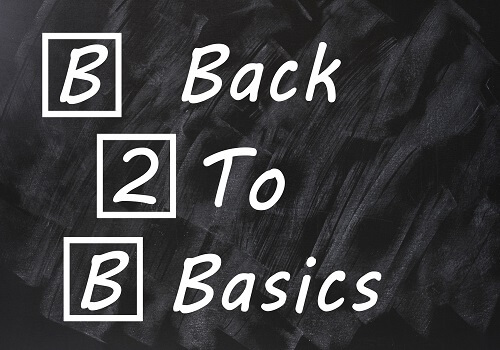“But as for you, you meant evil against me; but God meant it for good, in order to bring it about as it is this day, to save many people alive.”
Genesis 50:20 NKJV
A couple of weeks ago if I asked someone how were they doing, a common response may have been, “Busy.” Since then, the Coronavirus (aka COVID-19) has placed a halt to the usual hustle and bustle of our everyday lives. Yes, schools, colleges, restaurants, retailers, church services, sporting events, cruise lines, graduations, and many other public gatherings have all been canceled with hopes to prevent this dreaded virus from spreading. I know many of you may be experiencing anxiety, stress, or frightened as it relates to our current situation, but is there a silver lining? Just maybe this downtime will bring us back to the basics. I would suggest that maybe God is using this downtime to quiet us so that we may be able to hear His small voice–a calming voice that gives direction and peace during this unsettling time.
As a result of the virus, I am now working from home every day. When I log off work, my new routine is to take a long walk in my neighborhood for exercise and to get some needed fresh air. Normally, I would have gone to the YMCA to my Zumba or Pound class, but it is now closed for safety precautions. Yesterday while walking, I decided to listen to one of my Audible books I purchased a couple of months ago but not had the time to listen to. When Oprah Magazine asked Maria Shriver what should be required reading for every human, she replied, “Gift by the Sea” by Anne Morrow Lindbergh. I respect Maria Shriver’s opinion; therefore, I ordered the book on Audible. As I briskly walked through my neighborhood listening to the audiobook, I quickly understood why Maria had recommended it and how appropriate to be reading it at this particular time. “Gift by the Sea” was written 50 years ago but still remains relevant today. Ann Lindbergh was a wife and mother of five children. She talked about the many roles of being a wife and mother and all the distractions and countless demands that come along with it. Lindbergh states, “What a circus act we women perform every day of our lives. It puts the trapeze artist to shame. Look at us; we run a tight rope daily balancing a pile of books on the head–baby carriage, parasol, kitchen chair; still under control; steady now. This is not the life of simplicity but the life of multiplicity that the wise men warned us of. It leads not to unification but to fragmentation; it does not bring grace; it destroys the soul.” I remember when my life was very similar to what Lindbergh describes–the husband, kids, dog, full-time job, pursuing higher education, sports activities, birthday parties, church activities, friends, family, etc. I am now in a different season of my life, but as I look back, I do not know how I managed it all. One thing I do know is that I lost myself in the midst of it all. Several years ago, I was posed a question–“Who are you?” I could not respond–I did not know who I was outside of being a wife and mother. I had lost ME. Lingbergh states, “Women’s normal occupation, in general, runs counter to creative life or contemplative life or saintly life. The problem is not merely one of woman and career; a woman in the home; woman and independence; it is more basically how to remain whole in the midst of distractions of life; how to remain balanced no matter what centrifugal forces tend to pull one off-center.” Since that question was asked, I have regained my identity by way of a less complicated life–I am now true to myself.
Lindbergh shares how she created balance by taking a two-week vacation to the beach away from her busy suburban life in Connecticut. She explains the first step of simplicity is to cut out all the distractions and to shed (how little you can live with).
Shed clothes – you only need a few at the beach.
Shed vanity – that goes away with the clothes.
Shed shelter – she stayed in a small cottage–very different from what she was accustomed to in the suburbs; no amenities and very little furniture.
Shed friends – she maintained friendships with only those she could be completely honest with. “The most exhausting thing in life I’ve discovered is being insincere. That is why so much of social life is exhausting–one is wearing a mask.”
Shed the mask.
Yes, I have been inconvenienced by the Coronavirus; however, I find myself taking long walks and speaking and waving at neighbors I have never met; I am checking on friends and family more often because I am not out being busy; and I have more time to pray, write, read, and listen to books. I am sure families are having more meals together because restaurants are closed and more movie nights at home. Let’s get back to basics–more family time, reconnect with old friends, rekindle relationships, and remember the things we used to enjoy before we became so busy.
In a blog titled “How to Keep a Positive Attitude in Adversity,” Michael Kold provides the following five tools when facing adversity:
Take the time to go for a walk. When you take a walk and give yourself time to think and breathe the fresh air out in nature, it can often work wonders.
Focus on your goal. One of the greatest challenges in adversity is the fact that it shifts your focus. Write your goal down for your immediate future while thinking about how to reach it. When you do this, it will change your attitude.
Focus on solutions. Far too many people focus on problems rather than opportunities for solutions. Instead of talking about your hard times, start talking about the available solutions. Stop asking why you have adversity, and start thinking about how you can change hard times to good times–redirect your focus.
Be inspired. You have the opportunity to change your focus by doing things such as talking to a good friend who can cheer you up. You can also read a book or listen to an inspiring audiobook about people who have succeeded. This will make a BIG difference in the way you think when you are faced with adversity.
Remind yourself that nothing lasts forever. Nothing lasts forever, and at some point, the circumstances in your life will change so things go your way again. When you remind yourself of this, you ignite hope in yourself. A hope that slowly but surely will change your attitude.
As we navigate through this unfamiliar territory, let us continuously pray for our first responders and healthcare professionals; our elderly, our retail workers and restaurant owners, our high school and college students who may have to forfeit their last days of school and graduation; our frightened children; and for all those whose livelihoods are being affected. Be encouraged—this too shall pass.

